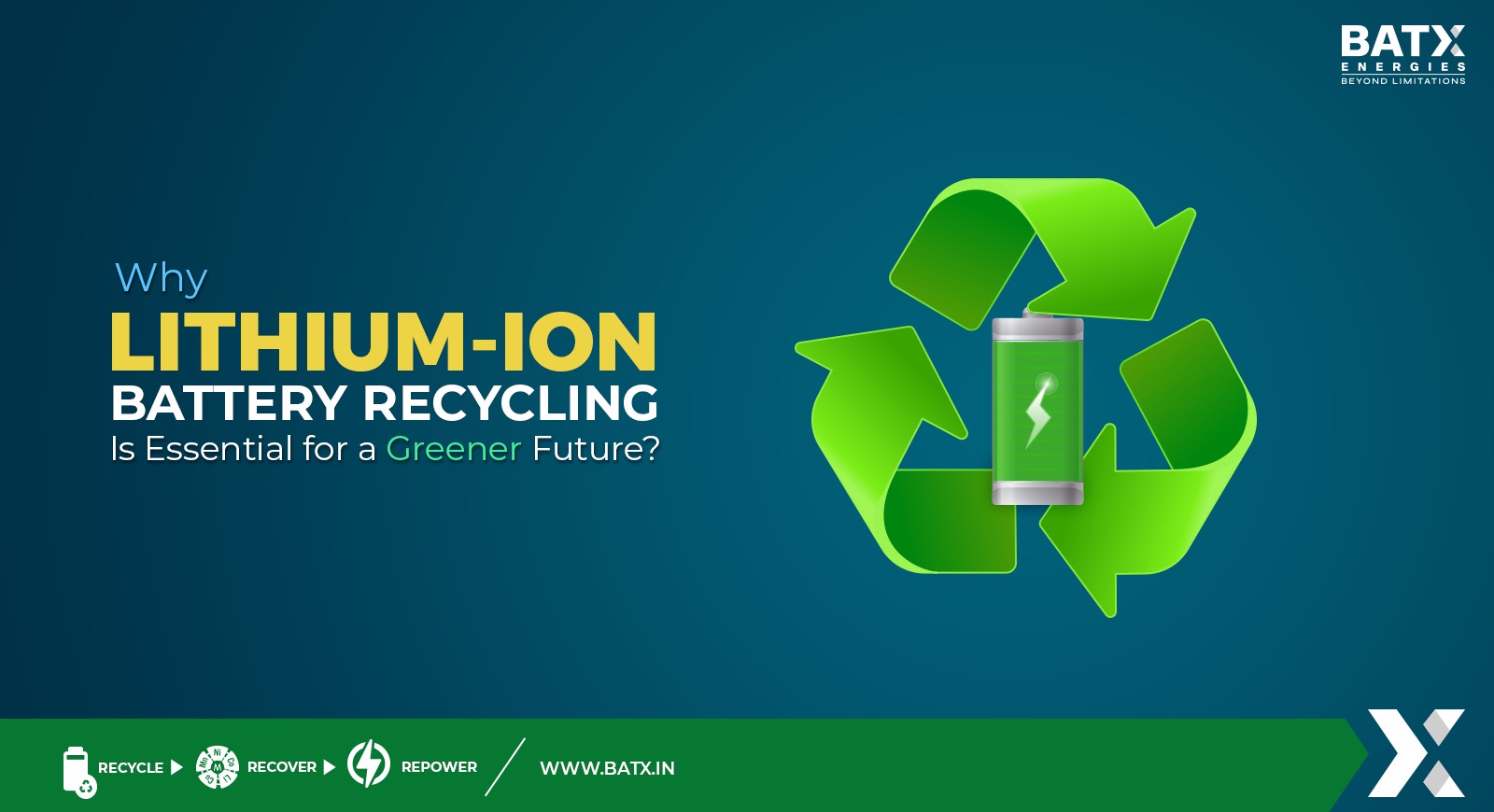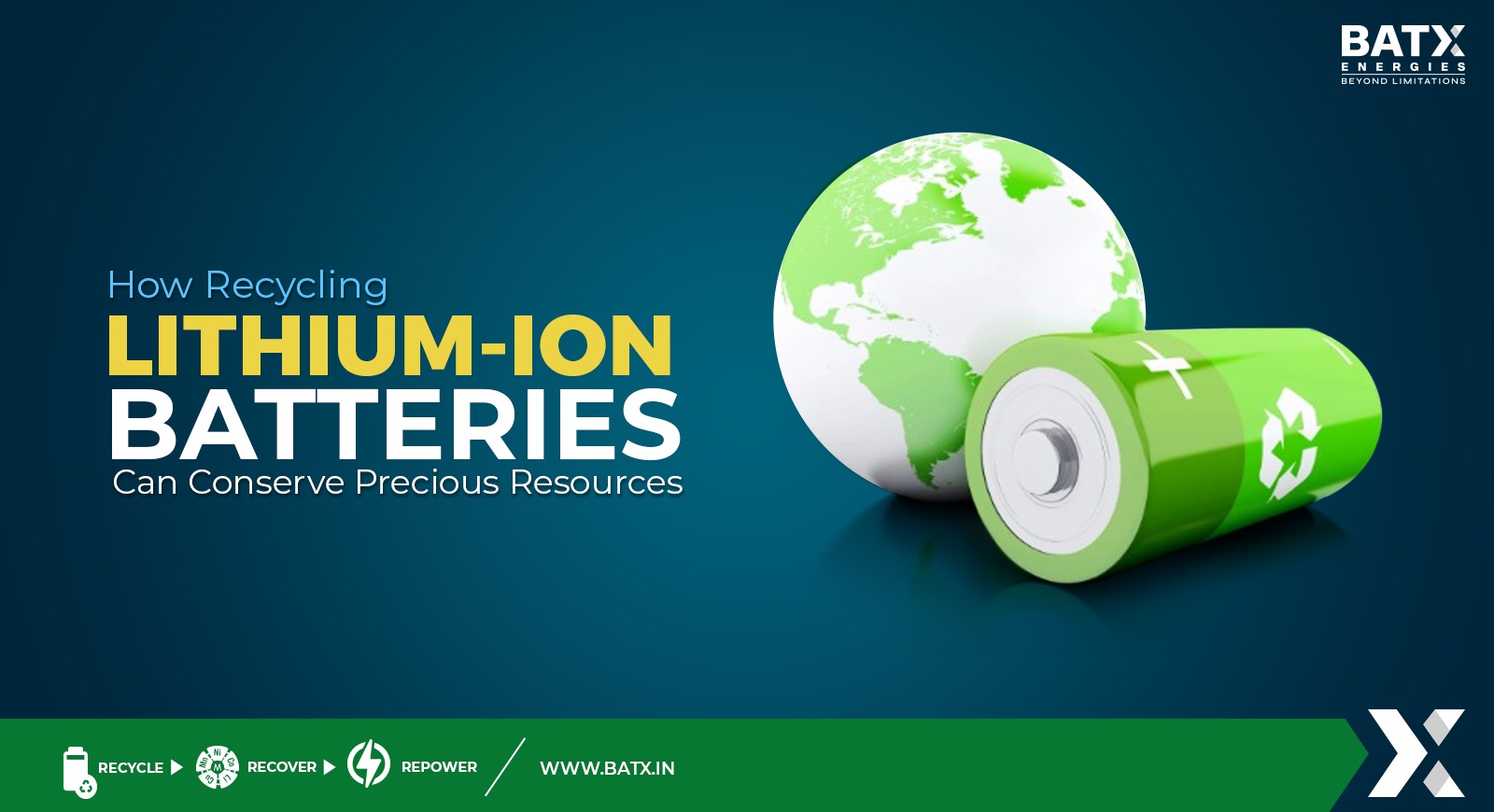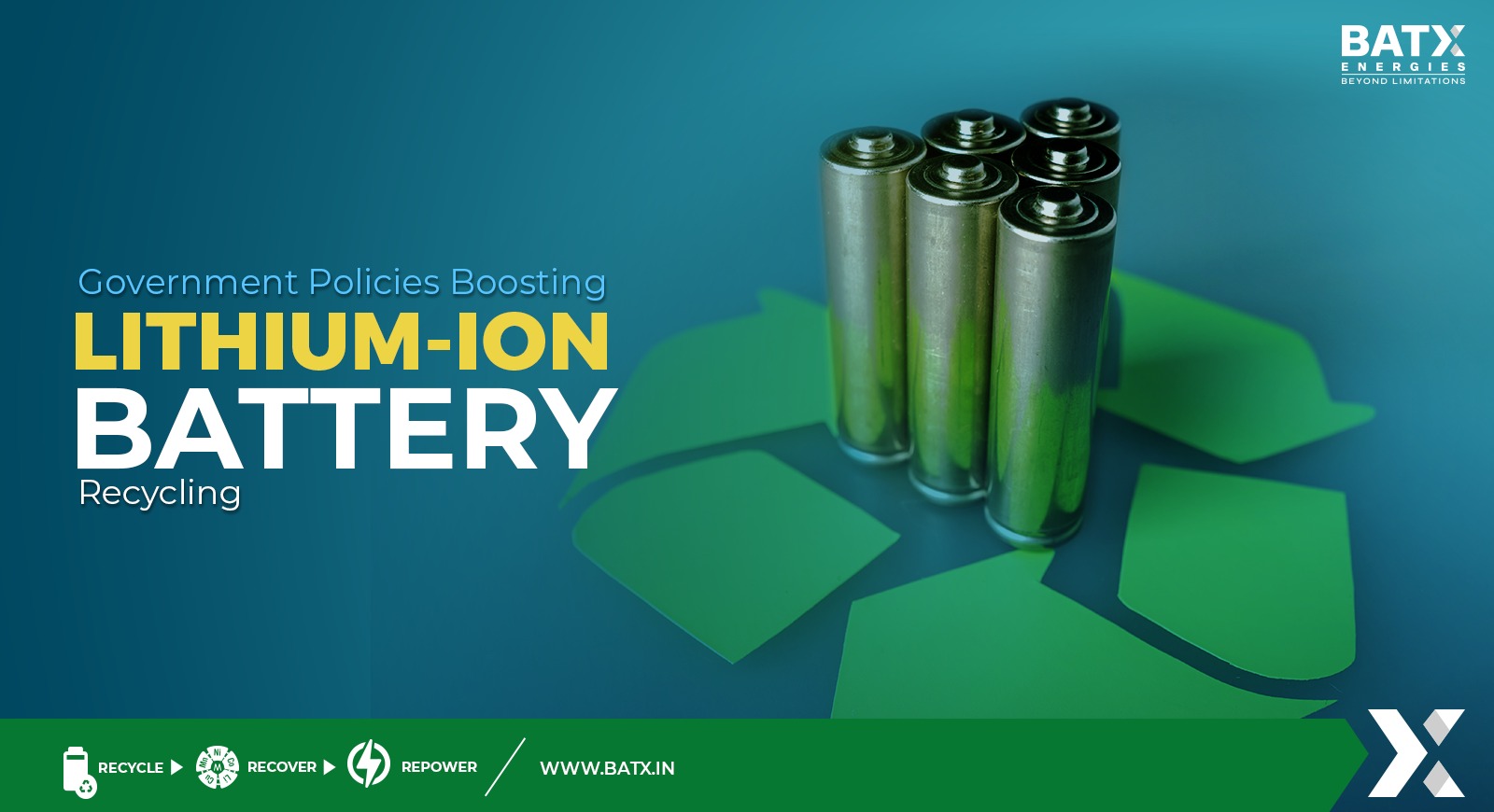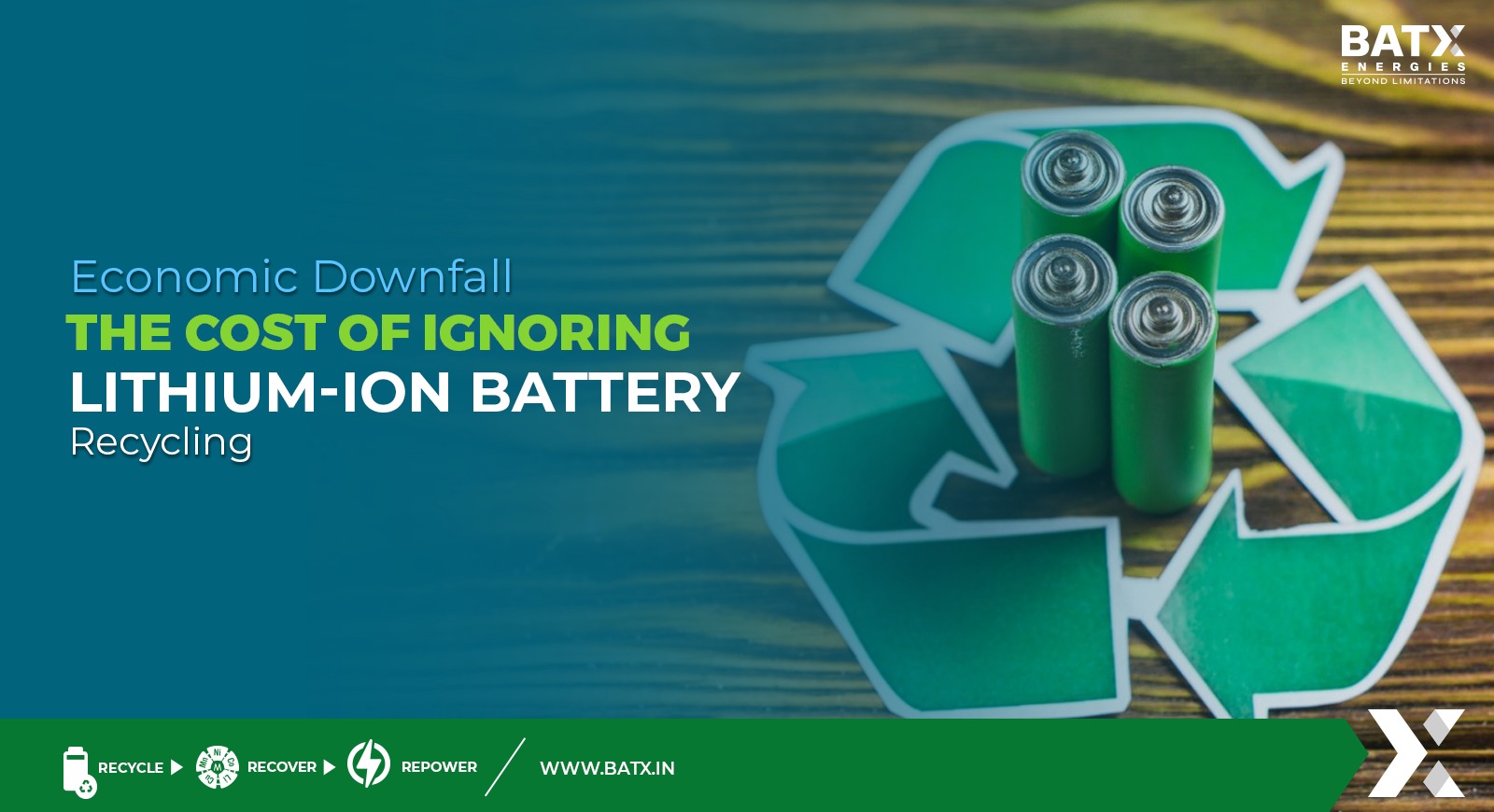The use of lithium-ion batteries is increasing every day. Extracting a new lithium-ion battery is expensive. It is better to recycle as this lowers manufacturing costs and protects the environment ensuring a greener future. This blog covers why lithium-ion battery recycling is essential for a greener future.
Table Of Contents:
Environmental Impact Of Lithium-Ion Batteries
Why Lithium-Ion Battery Recycling Is Essential for a Greener Future?
Conserve Resource
Energy Efficiency
Reduces Environmental Risks
Reduction Of Carbon Emissions
Environmental Impact Of Lithium-Ion Batteries
The world relies on lithium-ion batteries. With the increased use of lithium-ion batteries, manufacturing of batteries has increased rapidly. It has negative impacts on the environment. Let’s explore some of the environmental impacts of lithium-ion batteries.
- The mining process of lithium-ion batteries is done by pumping water into the shale and extracting a slurry. This has to be left out exposed to be evaporated. The process can take from 10 to 24 months to extract the lithium. This process is called lithium brine extraction. It has several impacts such as air pollution, soil degradation, habitat destruction, etc. on the environment.
- Manufacturing lithium-ion batteries require the extraction of raw materials like lithium, cobalt, nickel, etc. These raw materials must be dug from the earth leading to environmental degradation. Moreover, the chemical process used during battery manufacturing generates greenhouse and other pollutants.
- People lack awareness about the importance of lithium-ion battery recycling. They dispose of it as ordinary garbage. Lack of awareness contributes to environmental degradation and resource wastage.
Why Lithium-Ion Battery Recycling Is Essential for a Greener Future?
Lithium-ion battery recycling has minimal impact on the environment. Let’s explore how lithium-ion battery recycling ensures a greener future.
Conserve Resource
Nature provides us with everything but we mankind are the ones destroying it. Manufacturing the lithium-ion battery at a large scale comes with challenges regarding environmental degradation. Lithium-ion battery recycling recovers the resources that can be further used in manufacturing new batteries. It’s far better to recycle existing products than to cause harm to the environment in the search for new raw materials. This reduces the need for extracting, refining, and processing raw materials, all of which create a substantial environment for current and future generations.
Energy Efficiency
Manufacturing new batteries from recycled materials requires less energy than manufacturing them from scratch. New batteries from recycled materials use up to 30% less energy. Valuable materials like lithium, cobalt, nickel, and manganese are recovered from lithium-ion battery recycling. The energy-intensive methods are used to recover them in case it is not recycled. Hence, lithium-ion battery recycling is a catalyst for saving energy by reducing the burden of extracting batteries from new materials.
Reduces Environmental Risks
Lithium-ion battery recycling reduces environmental risks. The toxins from batteries can reach landfills if they are not disposed of properly. This can harm the health of humans, animals, and the environment. Plants won’t grow on acidic soil, animals cannot survive in such land, and humans are in danger of becoming sick. Recycling can help you and the environment. They prevent soil pollution, water pollution, and air pollution. Preventing pollution reduces the disruption and damage to the environment. Implementing recycling habits can help keep the environment clean and preserve our natural resources.
Reduction Of Carbon Emissions
As discussed earlier, lithium-ion batteries save energy. This lowers the carbon footprints and emissions. Carbon emissions contribute to global warming which impacts the environment and eventually threatens human health. Battery recycling also prevents the reaching of hazardous metals to landfills, ultimately reducing greenhouse gas production. Waste reduction is a key part of reducing greenhouse gas emissions. Reducing carbon emissions decreases the rate of global warming and other adverse environmental effects. It creates a great environment for the human, ecosystem, and wildlife.
Conclusion
The lithium-ion battery is considered more durable than other traditional batteries. Hence, it is used in most products such as electronics, electric vehicles, wireless headphones, and other electric energy storage devices. With the increasing number of lithium-ion batteries, improper disposal is also increasing. This can cause great damage to the environment. Not all people take a step to make the earth a better place to live. They dispose of lithium batteries as ordinary garbage and have zero knowledge of recycling.
Lithium-ion battery recycling comes along with a lot of advantages. It is a path to a greener future. If not recycled properly, our coming generations will left with nothing. Concerning the current and future situation, Batx Energies is on a mission to promote sustainability and is one step ahead of protecting Mother Earth. Remember us for the safe disposal and recycling of lithium-ion batteries. Let’s together take a step toward a greener future.



